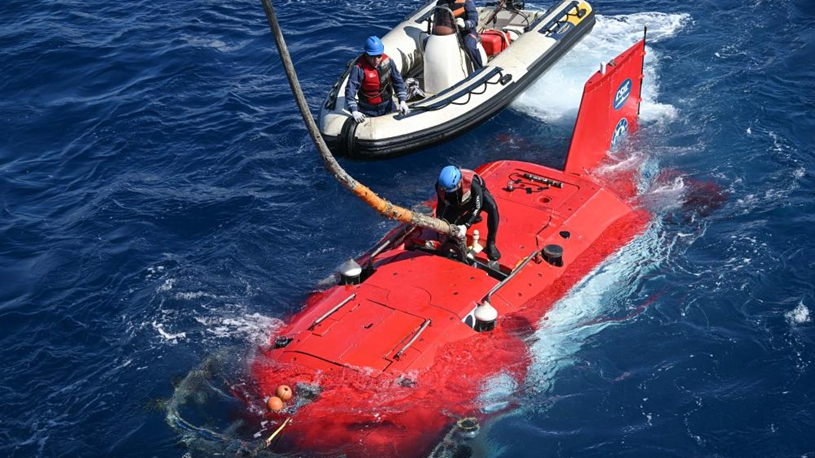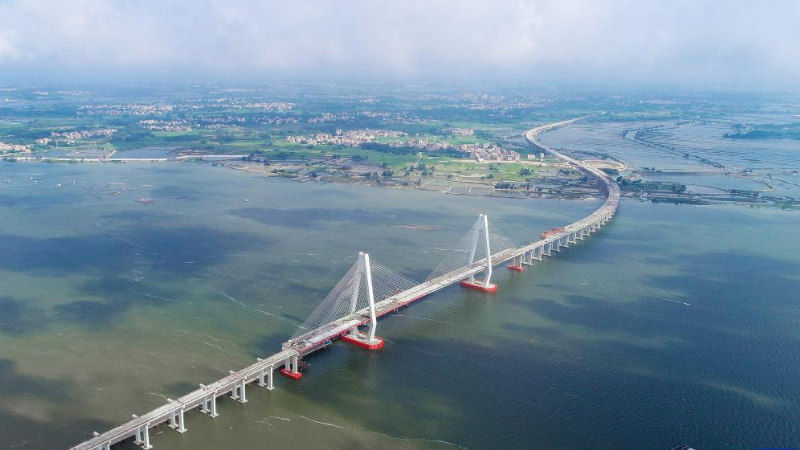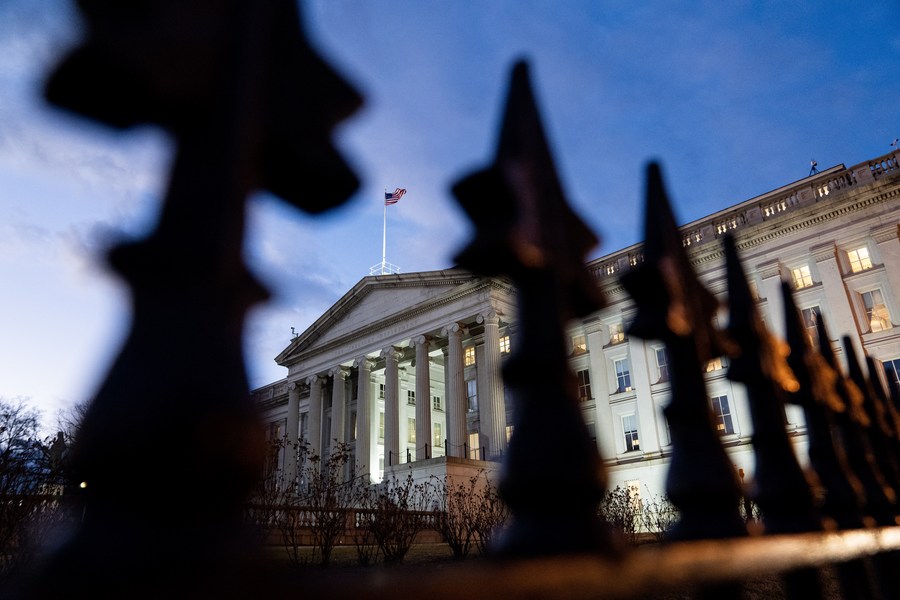
This photo taken on Jan. 20, 2023 shows the U.S. Department of the Treasury in Washington, D.C., the United States. (Xinhua/Liu Jie)
By trying to attribute to China everything it has done against other countries in recent decades, the United States implicitly admits all the harm it has done to the world to benefit its ruling class.
by Luis Antonio Paulino
"As hypocrisy is said to be the highest compliment to virtue, the art of lying is the strongest acknowledgment of the force of truth." Although it was said more than 200 years ago by English writer William Hazlitt, this phrase perfectly describes the behavior of the United States at the G7 meeting held at the end of May in Hiroshima, Japan.
By trying to attribute to China everything it has done against other countries in recent decades, the United States implicitly admits all the harm it has done to the world to benefit its ruling class.
In the opposite direction, it tries to attribute to itself the virtues that, in fact, belong to China, a staunch opponent of economic sanctions. Furthermore, China leads the way in defending world peace with deeds, not merely words.
By accusing China of economic coercion, the United States is ignoring its decades-long propensity of leveling economic sanctions against other countries.
Since the U.S. Declaration of Independence in 1776, in over 240 years, the United States has never gone 20 years without participating in a war. According to incomplete statistics, between 1945 and 2001, there were 248 armed conflicts in 153 regions of the world, of which 201 were initiated by the United States, representing approximately 81 percent.
George F. Kennan, the American diplomat who was the main ideology of the Cold War, wrote in the preface to the book "The Pathology of Power," by Norman Cousins in 1987 that "Were the Soviet Union to sink tomorrow under the waters of the ocean, the American military-industrial complex would have to remain, substantially unchanged, until some other adversary could be invented. Anything else would be an unacceptable shock to the American economy."
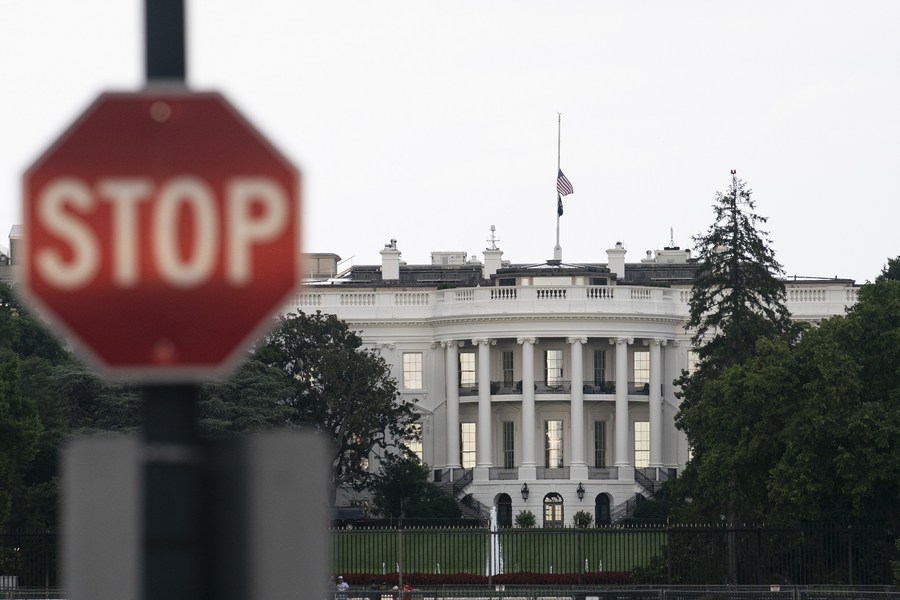
This photo taken on Aug. 4, 2022 shows the White House and a stop sign in Washington, D.C., the United States. (Xinhua/Liu Jie)
More recently, the United States has widely used economic sanctions to force regime change against any country that does not submit to its will, as is the case of Cuba, Venezuela, Iran and the Democratic People's Republic of Korea, among others.
In the Ukraine crisis alone, the United States and its allies issued 3,000 sanctions against Russia. At the G7 meeting in Japan, U.S. President Joe Biden promised to reveal a new round of restrictions on trade with Russia.
Washington's "derisk" and "decouple" strategy to isolate China from global supply chains is based entirely on economic sanctions. In this case, Washington prohibits its own companies from exporting specific microprocessors to China and intimidates other countries that do not even use inputs produced in the United States. For instance, ASML from the Netherlands is prohibited from exporting its high-technology products to China.
The other G7 nations know that the American strategy aimed at China solely benefits Washington, adversely affecting others who rely on exporting to China to sustain their dynamic economies. Yet, they still humiliatingly submit to American dominance.
The truth is that, alongside NATO, the G7 has become the carpet where the United States wipes its feet.
While G7 countries should be concerned with the serious economic problems that the world is currently facing, this group of rich economies is limited to serving as a doormat to selfish U.S. interests around the globe, including promoting protectionist U.S. policies and helping to wage commercial and technological wars against China.
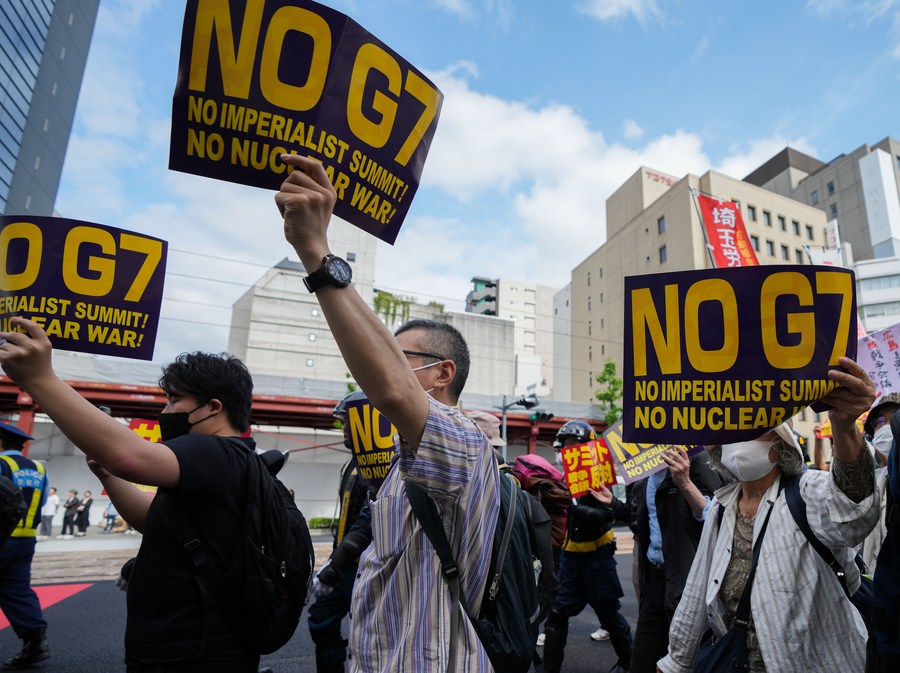
People rally in a protest against the Group of Seven (G7) summit in Hiroshima, Japan, May 20, 2023. (Xinhua/Zhang Xiaoyu)
The statement signed by the group at the end of the meeting threatened China. It illustrated how much the leaders of the wealthiest economies on the planet, instead of defending the interests of their own countries, prefer to submit to the role of America's auxiliary forces.
The crisis in Ukraine is a vivid example of how Washington always acts in its best interest without considering the negative consequences for other countries. Since the end of World War II, the United States has practiced a kind of military Keynesianism, in which the American military-industrial complex is the main driving force of its economy.
Washington has kept itself involved in wars, so its military-industrial complex can profit, paying no regard to the lost lives of thousands of soldiers and the plight it brought to the people involved.
The Ukraine crisis is hurting people in Europe as several European countries introduced price caps to address soaring food costs. This demonstrates that supporting China's 12-point proposal to end the conflict would be in everyone's interest.
But Washington does not want to end the conflict since it feeds the American military-industrial complex. Regrettably, its G7 allies bow their heads and applaud its warmongering.
Japanese Prime Minister Fumio Kishida, who hosted the G7 meeting in Hiroshima, a city destroyed by the United States with an atomic bomb at the end of World War II, invited Ukrainian President Volodymyr Zelensky to the meeting.
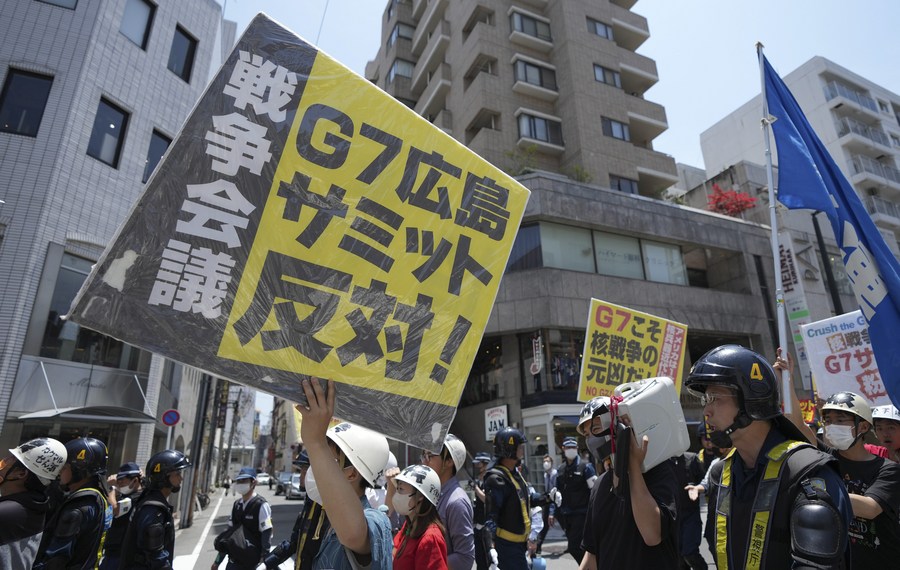
People rally in a protest against the Group of Seven (G7) summit in Hiroshima, Japan, May 21, 2023. (Xinhua/Zhang Xiaoyu)
Despite all the talks for peace, Biden unveiled a new military aid package worth 375 million dollars for Ukraine in the Japanese city. Additionally, he pledged to permit Ukraine's Western allies to provide the country with advanced fighter jets, including American-made F-16s.
The United States isn't interested in peace. Back in early March 2022, Israel, Türkiye and some other countries attempted to mediate peace between Russia and Ukraine but without any success because of sabotage by some Western countries. They believe that continued conflict in Ukraine serves their interest.
Not content with all this, Washington is preparing a new war, trying to replicate the Ukraine crisis in the Asia-Pacific region, taking advantage of the growing tensions across the Taiwan Strait, which the United States and its G7 allies seek to intensify, mainly by encouraging the island's separatist forces.
U.S. strategy creates confrontations and encourages division worldwide. Washington counts on the omission and connivance of the other G7 countries, who docilely submit to American pressures at the expense of their own interests.
As a result, there has been a growing sense of isolation among the United States and other G7 nations.
EU foreign policy chief Josep Borrell said that most countries outside Europe refuse to provide military support to Ukraine or adhere to Western sanctions against Moscow, Russia's RIA Novosti quoted a Financial Times report as saying.
"Latin America, Africa, Indo-Pacific: the three great regions of the world. We cannot take it for granted that they are on our side," Borrell said.
Editor's note: Luis Antonio Paulino is a professor at Sao Paulo State University's Faculty of Philosophy and Sciences in Brazil.
The views expressed in this article are those of the author's and do not necessarily reflect the positions of Xinhua News Agency.■

